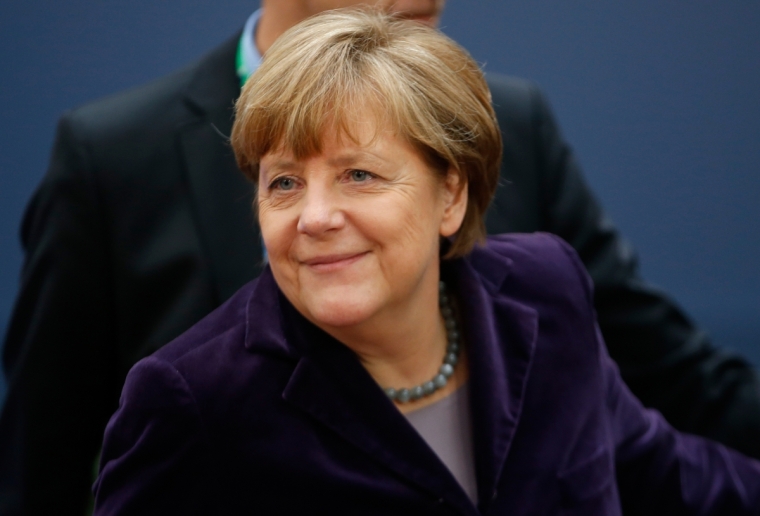Pastor's kid, German Chancellor Angela Merkel, named Time Magazine's Person of the Year

BERLIN, Germany (Christian Examiner) — A conservative Christian politician who votes for pro-life laws and defends the traditional understanding of marriage — Germany's chancellor, Angela Merkel — was recently awarded Time magazine's coveted Person of the Year designation.
I find it very liberating that as a Christian, one can make mistakes. That one knows there is something higher than just human beings, and that we are also called on to shape the world in responsibility for others. This is a framework for my life, which I consider very important.
The magazine chose Merkel, chancellor of Germany since 2005, for the the prize largely because of her work in the Greek debt and Europe's migrant crises. T
hree months ago she opened up the country's borders, to the chagrin of more isolationist elements in her Christian Democratic Union party. In total, the chancellor led her country to open up its borders to a million refugees this year, according to The Washington Post.
In Nancy Gibbs' column announcing the choice, the Time editor pointed out how Merkel herself understands the mindset of many refugees fleeing dictatorship through her experience growing up in East Germany, behind the infamous Iron Curtain.
"At a moment when much of the world is once more engaged in a furious debate about the balance between safety and freedom, the Chancellor is asking a great deal of the German people, and by their example, the rest of us as well," Gibbs writes in the magazine's announcement of the award. "To be welcoming. To be unafraid. To believe that great civilizations build bridges, not walls, and that wars are won both on and off the battlefield. By viewing the refugees as victims to be rescued rather than invaders to be repelled, the woman raised behind the Iron Curtain gambled on freedom."
The selection also comes in a year when the former Evangelical Lutheran pastor's daughter has made some of the clearest explanations of her faith yet.
Last month, Merkel told the synod of the German Evangelical Church, Germany's largest Protestant group of churches, of her hopes "that the upcoming 2017 anniversary of the Protestant Reformation would have a 'missionary' effect," according to globalpost.com.
Merkel also suggested that the protection of persecuted peoples, including Christians, should be a part of German foreign policy—a position that brought significant criticism from human rights groups who didn't like that she made a distinction between Christians and other religions.
She also recently described her faith to a young theology student.
"I am a member of the Evangelical Church," she said. "I believe in God, and religion is also my constant companion, and actually has been my entire life.
"I find it very liberating that as a Christian, one can make mistakes," she added. "That one knows there is something higher than just human beings, and that we are also called on to shape the world in responsibility for others. This is a framework for my life, which I consider very important."
Merkel and her first husband divorced in 1982. According to the Time profile, she lived "with her lover" at the time she entered the politics of a unified Germany.
Guthrie Graves-Fitzsimmons suggested in a Religion News Service commentary that American Christians could learn from Merkel. The writer noted that though a centrist on many issues Merkel has voted against abortion rights and believes that marriage is "the sacred union of a man and a woman."
Yet Graves-Fitzsimmons added that Merkel has consistently stood up against discrimination of all kinds, pointing specifically to her support of religious tolerance concerning the Syrian refugee crisis—a stand specifically tied to her Christian faith.
"We all have the opportunity and the freedom to have our religion, to practice it and to believe in it," Merkel has said, according to the Graves-Fitzsimmons article. "I would like to see more people who have the courage to say 'I am a Christian believer,' and more people who have the courage to enter into a dialogue."
Upon Merkel's entry into the conservative Christian Democratic Union party of a unified Germany in the early 1990s, the party was heavily Roman Catholic and heavily male. Noting this distinction, one her chief biographers, Volker Resing, entitled his book on her, The Protestant.